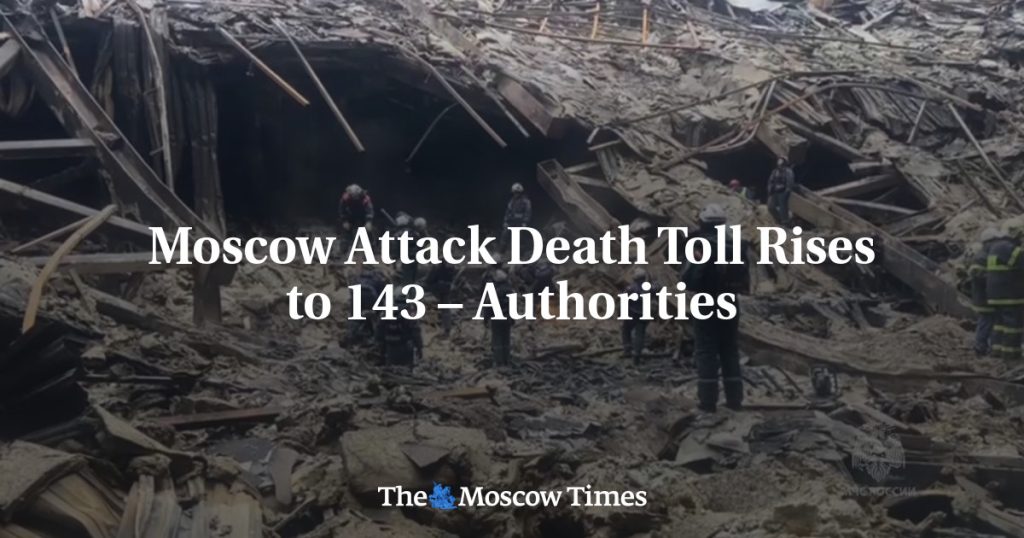The death toll from a terrorist attack at a concert hall in Moscow claimed by Islamic extremists rose to 143, making it the deadliest claimed by Islamic State on European soil. Many who were killed or injured in the attack were listed by authorities five days later, highlighting the severity of the incident. Health Minister Mikhail Murashko reported that 80 people, including six children, were still in the hospital recovering from injuries sustained during the attack. Additionally, 205 people received outpatient care as a result of the violence.
Four attack suspects from Tajikistan were arrested, along with several accomplices, and were ordered to be held in pre-trial detention. Russia reported that a total of 11 people were arrested in connection with the attack, with no information disclosed about the remaining seven suspects. Islamic State claimed responsibility for the attack quickly, but Russian officials have continued to suggest a link to Ukraine, a claim which Kyiv has vehemently denied. Russia has long been a target of Islamic State due to its actions in regions with significant Muslim populations and its support for the Syrian government during the civil war.
Russian President Vladimir Putin acknowledged for the first time, three days after the attack, that the attackers were radical Islamists. However, he maintained his assertion of a connection to Ukraine, claiming that the perpetrators were headed in that direction before being apprehended by authorities. The attack at the Crocus City concert hall near Moscow involved gunmen opening fire and setting fire to the venue, resulting in a large number of casualties. Despite this tragic event, Russia’s response has been to focus on the apprehension and detainment of suspects while placing blame on external factors such as Ukraine.
The attack in Moscow has shed light on the ongoing threat posed by Islamic extremists in Russia and other parts of Europe. With the rising death toll and number of injured individuals, it is evident that a significant impact was made by this act of terrorism. The immediate response from Russian authorities included the arrest of multiple suspects, who have since been ordered to remain detained until a trial can commence. Russia’s historical involvement in conflicts and suppression of unrest have made it a target for terrorist organizations like Islamic State, leading to further violence and instability in the region.
As investigations into the attack continue, questions remain about the motives of the perpetrators and their potential connections to other groups. The authorities’ focus on Ukraine as a potential link to the attackers has strained relations between Russia and Kyiv, with the latter denying any involvement in the incident. Despite the tragedy of the attack, Russian officials have remained steadfast in their approach, emphasizing the importance of apprehending those responsible and preventing future acts of terrorism from occurring on their soil. The attack on the Moscow concert hall serves as a stark reminder of the constant threat posed by extremism and the need for increased security measures to protect innocent civilians from harm.


